
Samba, also known as samba urbano carioca or simply samba carioca is a Brazilian music genre that originated in the Afro-Brazilian communities of Rio de Janeiro in the early 20th century. Having its roots in Angola and in Brazilian folk traditions, especially those linked to the primitive rural samba of the colonial and imperial periods, is considered one of the most important cultural phenomena in Brazil and one of the country symbols. Present in the Portuguese language at least since the 19th century, the word "samba" was originally used to designate a "popular dance". Over time, its meaning has been extended to a "batuque-like circle dance", a dance style, and also to a "music genre". This process of establishing itself as a musical genre began in the 1910s and it had its inaugural landmark in the song "Pelo Telefone", launched in 1917. Despite being identified by its creators, the public, and the Brazilian music industry as "samba", this pioneering style was much more connected from the rhythmic and instrumental point of view to maxixe than to samba itself.
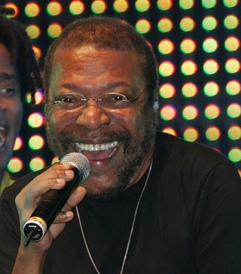
Martinho da Vila is a Brazilian singer and composer who is considered to be one of the main representatives of samba and MPB. He is a prolific songwriter, with hundreds of recorded songs across over 40 solo albums. He also has many songs that were recorded by singers from different musical genres. Internationally celebrated artists such as Nana Mouskouri (Greece), Ornella Vanoni (Italy), Katia Guerreiro (Portugal), Rosario Flores (Spain) have put their voices to Martinho’s songs and lyrics. As a singer, he is considered by critics as one of the top exponents of samba to have ever lived. Among his many national collaborations, a few notable names are Zeca Pagodinho, Arlindo Cruz, Chico Buarque, Beth Carvalho, Noel Rosa, Alcione, among others. Furthermore, Martinho composed some of the most important samba enredos and has forged a solid partnership with the Vila Isabel samba school. In spite of being a self-taught singer / songwriter with no academic background, Martinho has a great connection with classical music. He participated in the symphonic project "Samba Classics" under the baton of the late Maestro Silvio Barbato, which went on to be performed by several classical orchestras such as the Belo Horizonte, Brasilia, and Espirito Santo Orchestras, as well as the Orquestra Petrobras and the Orfeônica of Denmark. He also devised, in partnership with Maestro Bruno Leonardo, the Black Concert, a Symphonic performance that focuses on the participation of black musicians in classical music. In addition to being a celebrated singer and songwriter, Martinho is also a writer and author of 13 books: Notable works include Os Lusófonos, republished in Portugal, as well as Joanna and Joanes - A Fluminense Romance, and Ópera Negra, which was later translated into French. At the Book Fair in Paris in 2015, Martinho released his novel Os Lusófonos. As a journalist, Martinho writes articles for O Globo, Folha de São Paulo and O Estadão newspapers, several magazines, and, for two years, he was a weekly columnist of the newspaper O Dia.
Samba-canção is, in its most common acceptance or interpretation, the denomination for a kind of Brazilian popular songs with a slow paced samba rhythm.

Paulo Emilio Vanzolini was a Brazilian scientist and music composer. He was best known for his samba compositions, including the famous "Ronda", "Volta por Cima", and "Boca da Noite", and for his scientific works in herpetology. He is considered one of the greatest samba composers from São Paulo. Until his death, he still conducted research at the University of São Paulo (USP).
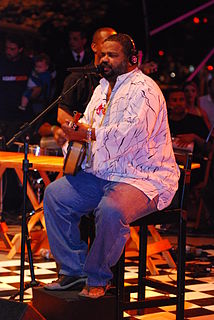
Arlindo Cruz is a Brazilian musician and songwriter, working in the genre of samba and pagode. Arlindo took part in the most important formation of Grupo Fundo de Quintal, and is considered one of the most important figures of the pagode movement.
João Nogueira was a Brazilian singer and composer, famous for his samba compositions. He was born in Rio de Janeiro.
Partido Alto refers to a type of samba with a number of particularities. In the world of samba subgenres and in samba reunions, partido alto songs can represent a time for improvisation and disputes, besides a stronger singalong opportunity for the participants.

Grupo Fundo de Quintal or simply Fundo de Quintal is a Brazilian Samba band formed in Rio de Janeiro at the end of the 1970s.
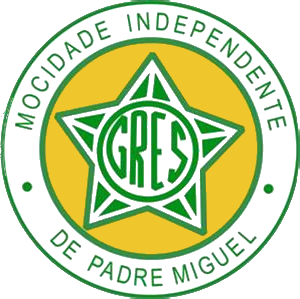
The Grêmio Recreativo Escola de Samba Mocidade Independente de Padre Miguel is a samba school of the city of Rio de Janeiro, being located on Rua Coronel Tamarindo, in the neighborhood of Padre Miguel.

Castor Gonçalves de Andrade e Silva was a well-known bicheiro in Rio de Janeiro. From the 1980s, Castor de Andrade was the uncontested leader of all the main bicheiros of the city of Rio de Janeiro, and had more than 100 policemen and a number of public servants, prominent politicians, and judges working for him. Castor was also very involved in the Brazilian Carnival and in soccer—he was the major sponsor of Bangu Atlético Clube and even called the "owner of Bangu", and he was also the patron of samba school Mocidade Independente de Padre Miguel. He also helped found in 1984 the Liga Independente das Escolas de Samba do Rio de Janeiro, which has run the Rio de Janeiro Carnival ever since and has served as the legal cover for the "jogo do bicho cartel".
The Grêmio Recreativo Escola de Samba Império Serrano is a samba school of the city of Rio de Janeiro, that was created on March 23 of 1947 after a disagreement of the extinct samba school Prazer da Serrinha. It was nine times champion of the Carnaval and can be considered one of the most traditional schools of the samba of the city. One of the principal vainglories of its members is the open democracy of the school, established in the school's foundation. Its history is normally confused with the history of the Morro da Serrinha, despite its headquarters being in Avenida Ministro Edgard Romero near the Estação Mercadão de Madureira, but in the same neighborhood: Madureira.
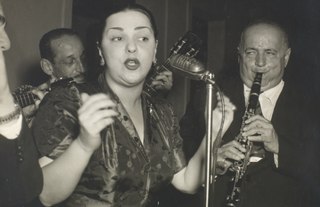
Linda Batista, born Florinda Grandino de Oliveira was a Brazilian popular musician.
Jonathan Haagensen Cerqueira is a Brazilian actor, model, and singer.

Madureira is a neighborhood in the North Zone of the city of Rio de Janeiro, Brazil. Its population is basically middle class and lower middle-class, including some shanty towns, (favelas).

Rosa Lúcia Benedetti Magalhães is a Brazilian professor and artist. She is best known as the most successful carnival designer in Rio de Janeiro, with six championships won since 1984, when the Sambadrome Marquês de Sapucaí was built. Designing carnival parades since 1971, Rosa likes telling historic events in her designs, such as the discovery of Brazil (2000), the life and creations of Hans Christian Andersen (2005), Don Quixote (2010), and the corruption scandal that led to the construction of the Versailles Palace in France (2017).
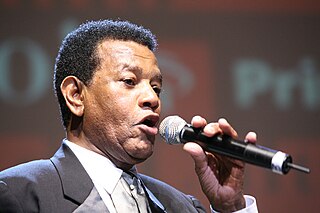
Jair Rodrigues de Oliveira was a Brazilian musician and singer. He is the father of Luciana Mello and Jair Oliveira, who also followed in his footsteps and became musicians.
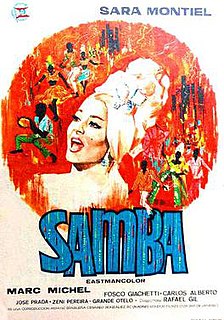
Samba is a 1965 Brazilian-Spanish musical film directed by Rafael Gil and starring Sara Montiel, Marc Michel and Fosco Giachetti.
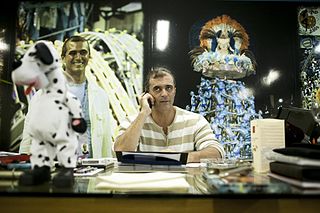
Paulo Roberto Barros Braga is a Brazilian carnavalesco, or carnival planner. He is two-time winner of the samba school title at the Rio Carnival, and has also trained circus artists and army soldiers as performers. He has been compared to Fernando Pinto (pt) and Arlindo Rodrigues.
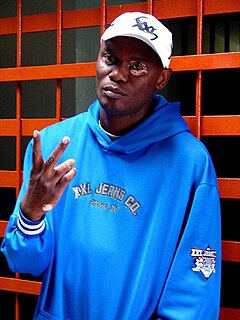
Antônio Luiz Júnior, better known by his stage name Rappin' Hood, is a Brazilian rapper, record producer, activist and former television presenter. He is famous for being a pioneer of the "samba rap" in the mid- to late 1990s.
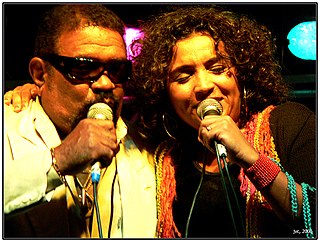
Gérson Rodrigues Côrtes, known as Gerson King Combo was a Brazilian soul and funk singer-songwriter.















